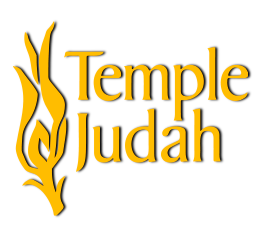Shalom All,
By the end of this month we will have concluded the Book of Leviticus. The final chapters of this book, which we read in Parshat B’har-B’chukotai, reiterate the covenant between God and the Jewish people. “If you follow My laws and faithfully observe My commandments then I will grant you rains in their season, so that the earth shall yield its produce, and the trees of the field their fruit (Lev. 26:3).” God also promises to give us peace in our land, to increase our numbers, to dwell among us, and be ever present in our lives.” I will be Your God, and you will be My people.”
The ultimate blessing, according to this parasha is that if we follow this Torah, then God will dwell among us and be ever present in our lives. Perhaps, then, it isn’t that God literally rewards us for our behavior or punishes us, but that those of us who choose to live Jewish lives will have a greater sense of God’s presence. While those who choose to ignore the Torah may feel abandoned by God (even though they aren’t). In the most difficult moments of our lives, we can still find God beside us, if we know how to look.
According to the Talmud we should say a hundred blessings each day. This implies that there are at least a hundred moments in every day to see God in the world around us. The person who has lived a life of Torah will have an easier time recognizing these blessings. . . .
The book of Leviticus, as a whole, is about learning how to be holy. We learn to be holy when we choose to see the extraordinary in the ordinary. A rational person knows that the sun rises in the morning because of how the earth spins around its axis, but a holy person will still choose to thank God for it’s warmth. A rational person knows that a rainbow is really the result of light refracting through water, but a holy person will still choose to thank God for not flooding the world with rain. A rational person knows that the Torah was written by humans, but a holy person will still choose to thank God for its teachings.
There are opportunities for blessing all around us. May we learn to recognize them as the fulfillment of God’s convenant with us.
Chazak, Chazak V’nitchazeik.
May we go from strength, to strength, to strength.
Rabbi Todd

